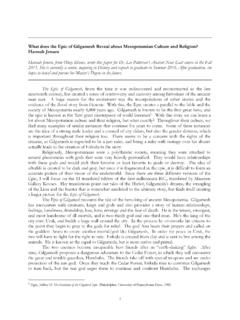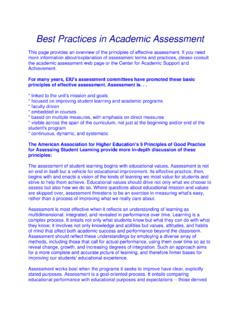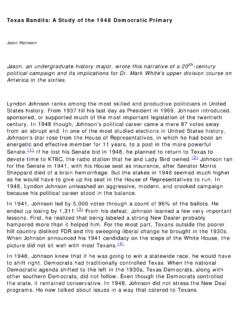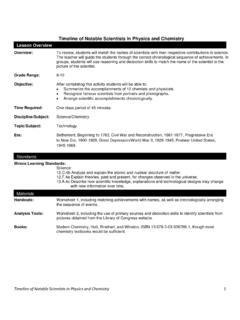Transcription of What does the Epic of Gilgamesh Reveal about …
1 _____. What does the Epic of Gilgamesh Reveal about Mesopotamian Culture and Religion? Hannah Jensen Hannah Jensen, from Olney Illinois, wrote this paper for Dr. Lee Patterson's Ancient Near East course in the Fall 2015. She is currently a senior, majoring in History and expects to graduate in Summer 2016. After graduation, she hopes to travel and pursue her Master's Degree in the future. _____. The Epic of Gilgamesh , from the time it was rediscovered and reconstructed in the late nineteenth century, has created a sense of controversy and curiosity among historians of the ancient near east. A huge reason for the excitement was the incorporations of other stories and the evidence of the flood story from Genesis.
2 With this, the Epic creates a parallel to the bible and the society of Mesopotamia nearly 4,000 years ago. Gilgamesh is known to be the first great hero, and the epic is known as the first great masterpiece of world literature'. With this story we can learn a lot about Mesopotamian culture and their religion, but what exactly? Throughout their culture, we find many examples of similar instances that continue for years to come. Some of these instances are the idea of a strong male leader and a council of city elders, but also the gender division, which is important throughout their religion too. There seems to be a concern with the rights of the citizens, as Gilgamesh is expected to be a just ruler, and being a ruler with outrage over his abuses actually leads to the creation of Enkidu in the story.
3 Religiously, Mesopotamians were a polytheistic society, meaning they were attached to natural phenomena with gods that were very heavily personified. They would have relationships with these gods and would pick their favorite or least favorite to guide or destroy. The idea of afterlife is created to be dark and gray, but since it is fragmented in the epic, it is difficult to form an accurate picture of their vision of the underworld. Since there are three different versions of the Epic, I will focus on the 11 translated tablets of the first millennium , translated by Maureen Gallery Kovacs. Her translations point out tales of the Harlot, Gilgamesh 's dreams, the strangling of the Lion and the hunter that is somewhat unrelated to the ultimate story, but finds itself creating a larger picture for the Epic of The Epic of Gilgamesh recounts the tale of the hero-king of ancient Mesopotamia.
4 Gilgamesh has encounters with creatures, kings and gods and also provides a story of human relationships, feelings, loneliness, friendship, loss, love, revenge and the fear of death. He is the wisest, strongest, and most handsome of all mortals, and is two-thirds god and one-third man. He's the king of the city-state Uruk, and builds a huge wall around the city. In the process he overworks his citizens to the point they begin to pray to the gods for relief. The god Anu hears their prayers and called on the goddess Aruru to create another mortal/god like Gilgamesh . In order for peace in Uruk, the two will have to fight for the right to rule. Enkidu is created from clay and is sent to live among the animals.
5 He is known as the equal to Gilgamesh , but is more native and primal. The two enemies become inseparable best friends after an earth-shaking fight. After time, Gilgamesh proposes a dangerous adventure to the Cedar Forest, in which they will encounter the great and terrible guardian, Humbaba. The friends take off with special weapons and are under protection of the sun god. Once they reach the Cedar Forest, Enkidu tries to convince Gilgamesh to turn back, but the sun god urges them to continue and confront Humbaba. The exchanges 1. Tigay, Jeffrey H. The Evolution of the Gilgamesh Epic. Philadelphia: University of Pennsylvania Press, 1982. 7. between the warriors and Humbaba are not understood by the men, but Enkidu eventually persuades Gilgamesh to destroy him.
6 After the defeat and their return to Uruk, the hero, Gilgamesh , is pursued by the goddess, Ishtar. But knowing her past with lovers, Gilgamesh rejects her invitation, which only manages to irritate and anger her. In retaliation, Ishtar sends down the Bull of Heaven, which Gilgamesh and Enkidu are able to defeat. After this, the gods decide that one of the warriors must die in retribution for slaying Humbaba and the Bull of Heaven. They end up deciding Enkidu is the one who must die. Gilgamesh is devastated by the loss of his friend and better half, and decides to rebel and set out find the secret to eternal life. Gilgamesh meets with Utanapishtim, who has received the gift of eternal life, to learn his secrets.
7 Utanapishtim tests him by forcing Gilgamesh to go without sleep, a test that he fails and is sent away. Utanapishtim's wife urges that they give Gilgamesh something to reward him for his quest, and they decide on the plant of rejuvenation , which will allow him to live his life over again. Unfortunately for Gilgamesh , he loses his plant to a snake and has to return home empty handed with no solution to eternity or a second chance at So let us start with the culture of Mesopotamia during the age of the Epic. Benjamin Foster puts forth evidence on the idea of sex and love in the culture and society of Mesopotamia. Foster argues that sex is a type of knowledge, in regards to the chapter on the seduction of Enkidu from Shamhat.
8 He describes this as sex belongs to the lowest form of human knowledge, because it is what everyone must experience and understand in order for them to be recognized as human. Foster also conveys that sex is for fun and is non-productive, and emotionalizes the animal state. Gilgamesh transcends such knowledge in a series of stages that leads him, by steps, to the highest knowledge, where the self is transcended and only , a world of literature. 3. Knowledge of another creates unity, which is only apparent to those with greater knowledge, which is the goal for all men and is only achieved after all else has been discarded. Foster also puts forth the idea of knowledge as Knowledge of Humanity, Another, Beginnings of Self-Knowledge, Self, and the Transcendence of Knowledge beyond the Self.
9 With this, there is difficulty dealing with the curse Enkidu, who endures because of the prostitute Shamash. Prostitutes were condemned for giving into seduction, and because Enkidu gave into them, he become more human. This shows that sex, an act that is far more prevalent today, is seen as a tool by women to humanize men while making them far more likely to fall into temptation. Other than this from Foster, he describes the Ninevah Gilgamesh epic, a complex Akkadian poem, and talks about how the Nineveh poet portrays sex and love as types of sex and In the Nineveh Epic, which tells of the Niveheh poet portraying sex and love as a type of knowledge, portays sex as an act belonging to the lowest common level of human knowledge and as a common experience everyone must have in order to become human.
10 Once the knowledge of sex is attained, having sex for pleasure rather than production no longer results in the acquisition of knowledge, and instead becomes a characteristic of the street or change back to the animal state. The Ninevah Epic credits Enkindu's giving into the seduction of Shamash as the reason for his inferiority to Gilgamesh , and also states he no longer has his pristine physical condition because he is no longer a virgin. At this time Enkidu entered the first stage of knowledge; sexual awareness. Besides Enkidu, Gilgamesh has an extensive history of sex in the epic, only proving how sex is a huge part of the culture in Mesopotamia during this time Gilgamesh is known at the 2 Kovacs, Maureen Gallery.









